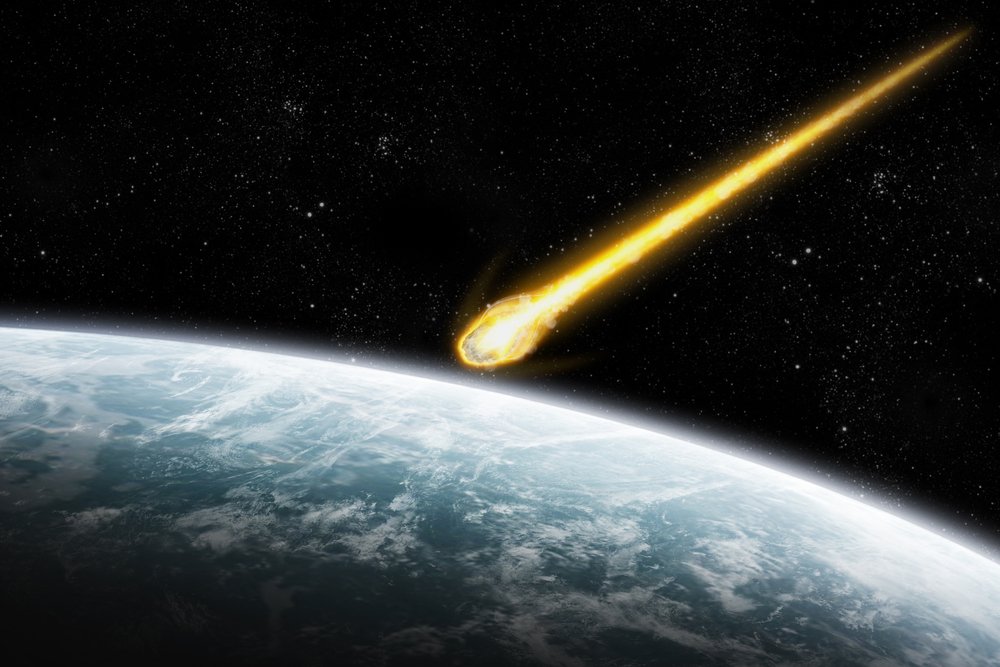 The Earth’s atmosphere works as a natural force field, and its high-pressure air ringing the planet is more responsible than previously thought for causing tumbling meteoroids to explode.
That is according to a new study out of Purdue University, where researchers have been working to better understand exactly what happens when extraterrestrial objects barreling toward Earth wind up exploding during their descent.
The research, published in the December issue of the journal Meteoritics & Planetary Science, shows that as meteoroids plunge, the high-pressure air they push against find its way into the objects’ pores and cracks, forcing their bodies apart from the inside. The result is a kind of detonation that looks like an explosion.
The Earth’s atmosphere works as a natural force field, and its high-pressure air ringing the planet is more responsible than previously thought for causing tumbling meteoroids to explode.
That is according to a new study out of Purdue University, where researchers have been working to better understand exactly what happens when extraterrestrial objects barreling toward Earth wind up exploding during their descent.
The research, published in the December issue of the journal Meteoritics & Planetary Science, shows that as meteoroids plunge, the high-pressure air they push against find its way into the objects’ pores and cracks, forcing their bodies apart from the inside. The result is a kind of detonation that looks like an explosion.
 To explain the astrophysics, researchers focused their work on a widely viewed February 2013 meteoroid explosion place over Chelyabinsk, Russia, a city of 1.1 million north of the Kazakhstan border.
To explain the astrophysics, researchers focused their work on a widely viewed February 2013 meteoroid explosion place over Chelyabinsk, Russia, a city of 1.1 million north of the Kazakhstan border.
According to The New York Times (paywall), the explosion broke apart the meteoroid, but a smaller chunk still collided into the Earth, sending shockwaves through the town that blew out windows. In all, 1,200 people were injured, 200 of them children—most of them by shattered glass.
Before it exploded, the meteoroid was thought have weighed about 10,000 tons, the study says. Only 2,000 tons of debris were recovered by scientists, though, suggesting atmospheric pressure played a role in disintegrating the meteoroid—and preventing it from causing even greater damage.


0 Comments